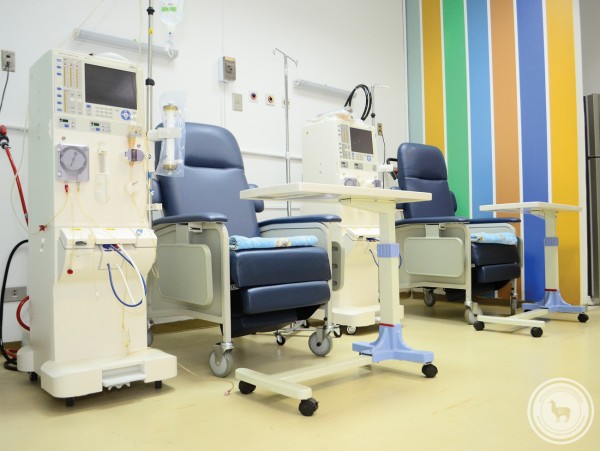Affording an Organ

26 Sep, 2016 | Maria Mayböck
Photo: Courtesy Of The Ministry of Health
The Changing Reality of Renal Patients in Bolivia
‘There was a moment in which I wanted to die. I didn’t want to shower, I didn’t want to eat. I was depressed. But now I am better,’ says Jesús Rojas, who is 35 and was diagnosed with chronic kidney disease more than ten years ago.
‘I ignored that it was a chronic disease, that I was going to be ill all my life,’ Roberto Chipana comments, who is 37 and developed kidney failure partly due to high alcohol consumption. ‘I could barely walk up two flights of stairs,’ he says. ‘My work was on the fourth floor.’
Jesús and Roberto do not reflect the successful story of their kidney transplants. Their young faces are lined with worry, fear, resignation, depression. Roberto currently walks on crutches. The dialysis treatment has weakened his body to the extent that the slightest fall could break his bones. Jesús’ voice is quiet. He speaks in short and clipped sentences, pausing frequently to look for a word. He finishes his accounts of depression with, ‘... but now I am better,’ as if to remind himself of his surgery’s success and that he is supposed to feel better now.
Various beliefs regarding death and the body are obstacles to organ donation.
In some places of the world kidney transplants are common surgical procedures, but in Bolivia they used to be practically inaccessible due to high cost and cultural reservations. A few years ago, Roberto had to turn down a kidney simply because he could not afford it. The organ cost about US$14,000 at the time. With the transplant process and necessary treatment, the cost added up to US$30,000 or $40,000. ‘A transplant was impossible for me,’ he recalls. ‘I was resigned to that reality.’
Because of the Programa Nacional de Salud Renal, launched in 2014, Jesús and Roberto can now speak about the nightmare of their illness in the past tense. The programme has made kidney transplants and dialysis treatment accessible and free of charge across Bolivia. This has doubled the number of transplants in the country since 2014. Before the programme, patients who could not afford a transplant or ‘access a dialysis unit due to its high cost, had to go home and pass away there,’ says Dr. Silvia Paz, who heads the initiative.
Despite the programme’s success, there are cultural barriers that lead Bolivians to reject organ transplants in general. ‘We have been able to partially break the paradigm surrounding transplants and organ donations,’ says Dr. Paz, although she is aware of the remaining challenges. In El Alto, she says, the rejection, especially to cadaveric transplants, is most aggressive. ‘One almost had to run out the back door because people wanted to lynch you,’ she remembers from her outreach experience in the area.
According to Milton Eyzaguirre Morales, an anthropologist from the Museo Nacional de Etnografía y Folklore, various beliefs regarding death and the body are co-responsible for this cultural rejection. In many faiths, the cycle of life and death requires that the human body returns the way it was conceived, ‘without a cut or a missing organ,’ he explains. In Andean thought, the body is viewed as the connection between the Ayamarka, or World of the Dead, and the entorno terrestre, or physical world. ‘If someone were to change the appearance of the body, the connection would be broken,’ he says.
Beyond spiritual matters, uninformed fear also present an obstacle to organ donation. ‘People don’t donate because they are scared,’ Roberto says.‘They are scared of falling ill like us.’ This is particularly painful for patients awaiting a lifesaving transplant.
Through educational outreach and the programme's growing presence across the country, attitudes toward organ donation are slowly changing. ‘People listen to you now,’ says Dr. Paz. ‘They are starting to understand. But if eventually they say “no”, we also respect that decision.’
The programme has made dialysis and kidney transplants free of charge across Bolivia.
After years of hardship, misunderstanding and denial, things are clearly getting better for both the programme and its beneficiaries. Jesús and Roberto are on the road to recovery, and the programme is growing and reaching more renal patients. The Programa Nacional represents a milestone for the Ministry of Health and the medical world in Bolivia but it is only a small battle in the fight for making transplants accessible in the country.







